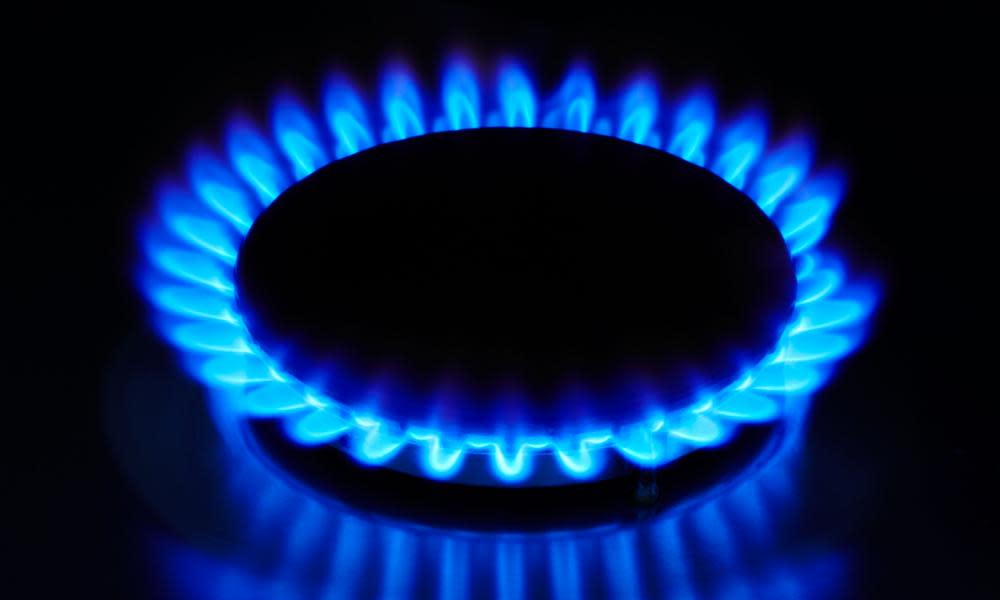UK energy crisis: will bills go up and should I switch to a bigger supplier?

Five energy firms have gone bust in past two weeks, and with suppliers already likening recent events to the 2008 financial crisis, households could be in for a choppy ride.
What will happen to energy bills?
It looks as though they are only going only one way – and that is up. The regulator Ofgem’s price cap – the maximum suppliers can charge customers on their standard variable tariffs – was already set to rise by 12% to £1,277 a year for average (dual fuel) use on 1 October. Households that use prepayment meters – typically the most vulnerable customers – will see average energy bills rise to £1,309 a year.
Analysts are warning that the cap could go up to between £1,440 and £1,500 in the spring of 2022, if the rise in wholesale gas prices is sustained. The cap is set every six months after a review. In the unlikely event that Ofgem suspends its price cap this week, gas and electricity bills will leap alarmingly, according to Joe Malinowski, who runs The Energy Shop.
I’m with a smaller supplier. What happens if it goes bust?
Experts are warning that there will be a tsunami of company failures unless the government intervenes, and it is smaller firms that are likelier to go under, with bigger companies taking on their customers.
When a supplier fails, Ofgem has a process to automatically reassign customers to a “supplier of last resort”, so you will not be cut off. However, depending on your current tariff, you could see your bills rise considerably – some could see increases of 40% (see below).
The customers of Utility Point, which failed earlier this month, have all been moved over to EDF. On Monday customers of People’s Energy, another collapsed firm, were told that they are being moved to British Gas.
Make sure you take meter readings when you are notified of any change to your supply.
Will I stay on the same tariff as offered by the failed supplier?
No. In previous years the new supplier sometimes honoured the old firm’s tariffs, but that’s not going to happen now. Ofgem has confirmed that the default suppliers can only put the customers they inherit on a price-capped tariff.
Customers who were on the best fixed-rate deals taken out nine months ago will see bills rise by as much as £250 a year if their supplier goes bust and they stay with the “new” supplier chosen for them.
Can I switch, and what happens to credit I have built up?
The supplier you are moved to will honour any credit balance that you built up with your old, failed provider. Once you have been switched to the Ofgem-appointed supplier, and any balance transferred over, you can leave at any stage without paying exit fees, although at the moment you are unlikely to be find a much better deal. Switches typically take 14-21 days.
My small supplier is still trading. Should I switch to a bigger supplier now?
In theory there is nothing to stop you, but it probably makes sense to sit tight and see how this plays out, particularly if you are on a cheap tariff. It looks as though the government is going to have to put in place some kind of rescue package, so it may be worth waiting.
Are there any low-priced deals left?
Most suppliers pulled all of their cheapest tariffs on Friday, but there are a few deals still being advertised. On Monday a number of firms, including E.ON, were offering one-year fixed-rate tariffs for about £1,200 a year for dual fuel. E.ON also has a two-year fixed-price tariff, which is only a shade more expensive than the one-year deal, although these may not be around for long.
British Gas’s HomeEnergy Secure tariff has prices fixed until November 2023 and costs about £1,400 a year. This compares to the £1,000 that switch-around customers were paying prior to this crisis.
Should I get a fixed-rate deal when the best deals are so expensive?
Related: CO2 shortages threaten UK meat supplies; Evergrande crisis hits markets – business live
If you really value price certainty, look at the E.ON/British Gas two-year plus deals. However, if your existing tariff is significantly cheaper than the current deals, it’s probably worth waiting to see how things play out, according to MoneySavingExpert’s Martin Lewis.
I have solar panels on the roof. Am I insulated from all this?
Sadly not, and if your supplier fails, you will face the added complication of securing your feed in tariff payments that come from your electricity supplier. Unless you are off-grid and only using the power you produce, you will be affected by all this just as much as your neighbours.

